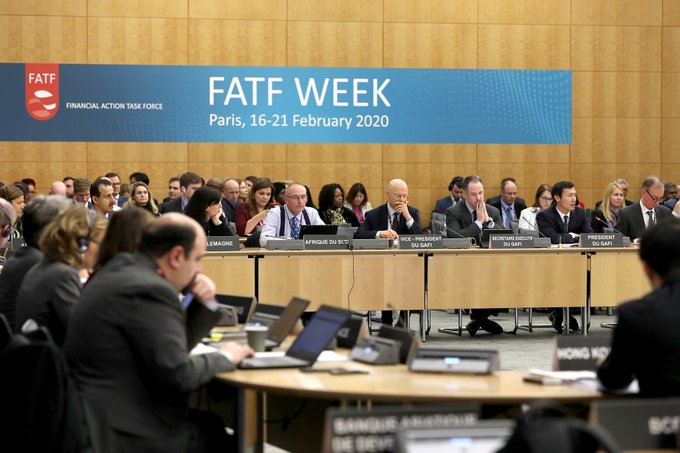New Delhi (NVI): Following is the outcome of Financial Action Task Force (FATF) Plenary held in Paris from February 19 to 21, 2020 on Pakistan:
Since June 2018, when Pakistan made a high-level political commitment to work with the FATF and APG (Asia Pacific Group) to strengthen its AML/CFT (Anti-Money Laundering/Combating the Financing of Terrorism) regime and to address its strategic counter-terrorist financing-related deficiencies, Pakistan’s political commitment has led to progress in a number of areas in its action plan, including risk-based supervision and pursuing domestic and international cooperation to identify cash couriers.
Pakistan should continue to work on implementing its action plan to address its strategic deficiencies, including by:
(1) demonstrating that remedial actions and sanctions are applied in cases of AML/CFT violations, relating to TF (terror financing) risk management and TFS obligations;
(2) demonstrating that competent authorities are cooperating and taking action to identify and take enforcement action against illegal money or value transfer services (MVTS);
(3) demonstrating the implementation of cross-border currency and BNI controls at all ports of entry, including applying effective, proportionate and dissuasive sanctions;
(4) demonstrating that law enforcement agencies (LEAs) are identifying and investigating the widest range of TF activity and that TF investigations and prosecutions target designated persons and entities, and those acting on behalf or at the direction of the designated persons or entities;
(5) demonstrating that TF prosecutions result in effective, proportionate and dissuasive sanctions
(6) demonstrating effective implementation of targeted financial sanctions (supported by a comprehensive legal obligation) against all 1267 and 1373 designated terrorists and those acting for or on their behalf, including preventing the raising and moving of funds, identifying and freezing assets (movable and immovable), and prohibiting access to funds and financial services;
(7) demonstrating enforcement against TFS violations including administrative and criminal penalties and provincial and federal authorities cooperating on enforcement cases;
(8) demonstrating that facilities and services owned or controlled by designated person are deprived of their resources and the usage of the resources.
All deadlines in the action plan have expired. While noting recent and notable improvements, the FATF again expresses concerns given Pakistan’s failure to complete its action plan in line with the agreed timelines and in light of the TF risks emanating from the jurisdiction.
To date, Pakistan has largely addressed 14 of 27 action items, with varying levels of progress made on the rest of the action plan.
The FATF strongly urges Pakistan to swiftly complete its full action plan by June 2020. Otherwise, should significant and sustainable progress especially in prosecuting and penalising TF not be made by the next Plenary, the FATF will take action, which could include the FATF calling on its members and urging all jurisdiction to advise their FIs (Foreign Institutions) to give special attention to business relations and transactions with Pakistan.








